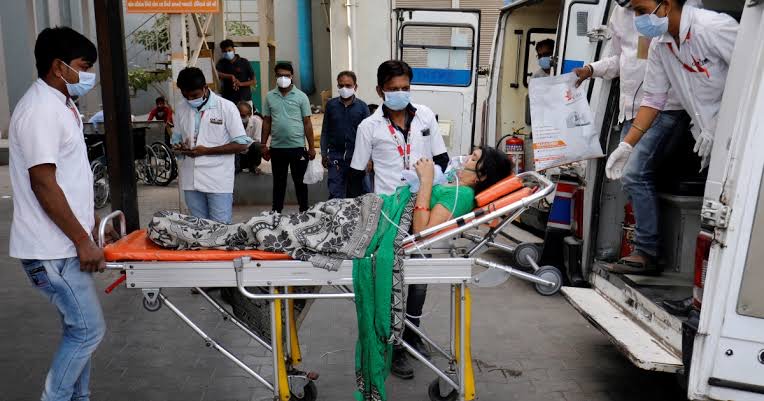India’s COVID-19 Variant Found In 17 Countries As Death Toll Surpasses 200,000
 India’s coronavirus death toll has on Wednesday, April 28 surpassed 200,000, with more than 3,000 fatalities reported in just 24 hours.
India’s coronavirus death toll has on Wednesday, April 28 surpassed 200,000, with more than 3,000 fatalities reported in just 24 hours.
The development follows World Health Organization’s warning that a variant of COVID-19 to be contributing to a surge in cases in India has been found in 17 countries.
Read Also: COVID-19 Patients Dying Without Oxygen In India Amid Surge In Cases
India is facing surging new cases and deaths in the pandemic, and fears are rising that the variant could be contributing to the unfolding catastrophe.
The rapid rises in cases have been blamed on a new virus variant as well as mass political and religious events, which has overwhelmed hospitals with dire shortages of beds, drugs, and oxygen.
Read Also: Over 1,000 Test Positive For COVID-19 At India Religious Festival
According to the UN health agency, the B.1.617 variant of COVID-19 first found in India had as at Tuesday been detected in over 1,200 sequences uploaded to GISAID open-access database “from at least 17 countries”.
“Most sequences were uploaded from India, the United Kingdom, USA and Singapore,” the WHO said in its weekly epidemiological update on the pandemic.
WHO recently listed B.1.617 — which counts several sub-lineages with slightly different mutations and characteristics — as a “variant of interest” but so far it has stopped short of declaring it a “variant of concern”.
Read Also: Infection Surge: COVID-19 Situation In India Is ‘Beyond Heartbreaking’ – WHO Chief
That label would indicate that it is more dangerous that the original version of the virus by for instance being more transmissible, deadly or able to dodge vaccine protections.
The explosion in infections in India — 350,000 new cases were recorded on Tuesday alone — has driven a surge in global cases to 147.7 million.
The virus has now killed more than 3.1 million people worldwide and a total of 201,187 people have now died in India, according to health ministry data, although experts suspect that the true toll is higher.
India has now reported 18 million infections, an increase of 360,000 in 24 hours, which is a new world record. This month alone the country has added almost six million new cases.
WHO acknowledged that its preliminary modelling based on sequences submitted to GISAID indicates “that B.1.617 has a higher growth rate than other circulating variants in India, suggesting potential increased transmissibility”.
It stressed that other variants circulating at the same time were also showing increased transmissibility, and that the combination “may be playing a role in the current resurgence in this country.”
The UN health agency also stressed that “further robust studies” into the characteristics of B.1.617 and other variants, including impacts on transmissibility, severity and the risk of reinfection, were “urgently needed”.
